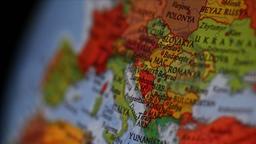Ever more of us nowadays think that the crisis in Europe has shaken the foundations of Turkey’s European Union (EU) project. Looking at the acceleration of the trade figures between Turkey, the Middle East, and North Africa, some get caught up in the notion that the region might be an alternative to the EU as a partner for Turkey. I personally feel sorry for those who think that the EU is breaking down and that Turkey has an alternative. I have always thought that the EU was the only thing that could transform Turkey positively in the twenty-first century, just as the Republican project transformed it in the twentieth. This idea of has been strengthened lately.
I do not intend to enumerate the benefits of the EU. I merely want to remind those who seem to have forgotten of the biggest one: The EU is the most important convergence machine ever developed. That is, it is a mechanism that turns middle income countries, just like Turkey, into high income ones, without letting them get caught in the middle-income trap, which is Turkey’s main risk. To this day, 200 million people from Southern and Central Europe have benefited from it.[1] Moreover, the EU is the only region that enables growth for high-current account deficit countries. Capital within the EU flows from rich but low-growth countries towards those with stronger growth prospects. It gives lower income countries the opportunity to access the markets and capital of rich countries. The main cause of the European crisis per se has to do with how these low-income countries used the capital they accessed: in productive areas stimulating growth, or in non-growth areas.
I think Turkey has failed to build the ability to exploit the EU in areas stimulating productivity. There are three areas which I think will improve the level of productivity and prosperity in Turkey and constitute the backbone of the country’s new growth story: education, justice and infrastructure. If utilized well in these areas, the EU project can turn Turkey into a more prosperous, just and livable country.
- Education. This is the most critical sector for the advancement of Turkey’s productivity level. There is no need to repeat the wide array of qualitative and the quantitative problems of the public education system in Turkey, the millions wasted on the private test-preparation institutions or the pathetic levels of English proficiency. [2] Over the last decade, we could have seized the EU accession process as a chance to mobilize education reform. But the way we handle this national issue has not gone beyond, in fact lagged behind, the depth at which we chat about any Fenerbahçe-Galatasaray games. Another thing that bothers me is that our government spends a total $13,000 per student on education between the ages 6 and 16 whereas Poland spends $40,000.[3] Apart from providing funds for education, the EU can guide Turkey through the process. I have been witnessing how the EU can play a transformative role in education. For the last three years, for example, I have been teaching a course at the Bilkent University’s Department of Economics. Half of the students in my class have been EU citizens visiting Turkey on the EU’s Erasmus exchange program; and believe me when I say that my students have learned much more from those German exchange students than they could have learned from me. I am sure the EU also would prefer negotiating the accession prospects of a country as well educated as Italy, than with one in which the average citizen is a seventh-grade dropout.[4]
- Justice. Is there any of you who thinks that Turkey does not have a justice problem? That Turkey spends €800,000 per year on justice while France, Italy and Spain spend €4 billion might give insight into the magnitude of the problem.[5] Obviously, allocating money alone is not enough. The hardware is as important as the software. The necessity of reforming the mindsets of judges and public prosecutors is evident. What we need is a revolution to change the mentality from one that relies on the might of the state and sees the citizen as a mosquito to smash, to one which believes that the individual is as valuable as the state. Can’t we use the EU perspective to achieve this? We can design smart mechanisms in an array of fields including alternative conflict resolution mechanisms, a judicial law enforcement system that will reduce the dependence on the police department and systems that will serve justice not only for winners but also for losers. We can use the EU’s finances and the experience in this task. I also have to mention this: Inviting a public prosecutor all the way from Italy to hear his experiences on bringing down Gladio, but employing an interpreter unfamiliar with legal terminology, is a glaring an example as any to show the degree to which Turkey has been utilizing the benefits of the EU. Don’t you think? [6]
- Infrastructure. In spite of aggressive investments in simple two lane roads (duble yol) and high-speed passenger train systems, I think that Turkey is still far from where it should be when it comes to infrastructure. In order to become a top ten economy, Turkey has to provide satisfactory transportation services, both for consumers [7] and producers. Did you know that it is not possible to transport containers via scheduled railway from Kayseri or Konya, to Cologne or Lyon? Did you know that the share of railway transport in foreign trade is only 1 percent, or that the lack of railway investments is confining Anatolian producers to the domestic market? That’s almost like our insufficient urban subway infrastructure confining women to the private space. [8] Let us for a moment assume that we chose to transport goods within the country only via land routes. Why is there no highway connection between Istanbul and Izmir, Izmir and Ankara, Ankara and Adana, or Adana and Kayseri? Having failed to reform its tax system, Turkey is consuming the world’s most expensive gas, which hinders the competitiveness of cities distant to ports and leads to a congested agglomeration in Istanbul and the Marmara region. The bottom line is that Turkey must spend billions of dollars on infrastructure. This, just like investments on education, can contribute to advancing productivity. I am sure that European banks can play a major role in financing these productivity-boosting investments in inland Anatolia and practically make it a member to the Customs Union.
Firm steps in these three areas will directly enable productivity gains. Not only will this contribute to Turkey’s new growth story, but also attract at lower costs the foreign savings we dearly need.
Do you think we should give up hopes on the EU just because of the negative attitudes of a handful of European politicians? Does a country that can save only 13 percent of what it earns have any other option than to invest? If you can think of any, please let me know.
[1] If you are skeptical about the EU, please take a look at the following report by the World Bank: “Golden Growth: Restoring the Luster of the European Economic Model” http://web.worldbank.org/WBSITE/EXTERNAL/COUNTRIES/ECAEXT/0,,contentMDK:23074045~pagePK:146736~piPK:146830~theSitePK:258599,00.html
[2] You might check the following notes and multimedia for further insight on the issue: http://www.tepav.org.tr/en/haberler/s/1805, http://www.tepav.org.tr/en/haberler/s/2537; http://www.tepav.org.tr/tr/haberler/s/371 (Turkish); https://tepav.s3.eu-west-1.amazonaws.com/upload/files/haber/1330704312-2.NTV.wmv (Turkish)
[3] The latest data is for 2007 by the OECD. (Education at a Glance: OECD Indicators - 2010 Edition)
[4] http://www.tepav.org.tr/en/kose-yazisi-tepav/s/2842
[5] http://www.coe.int/T/dghl/cooperation/cepej/default_en.asp
[6] It is not that university student but the people who assigned her the job to blame: http://www.youtube.com/watch?v=QQ2bQuRPaCs (Turkish)
[7] Or electors, you can say.
[8] I do not want to accept that our administrators are of the view, “let man take care of the family and Istanbul take care of the economy.”
*Esen Çağlar, TEPAV Economic Policy Analyst, http://www.tepav.org.tr/tr/ekibimiz/s/25/Esen+Caglar




